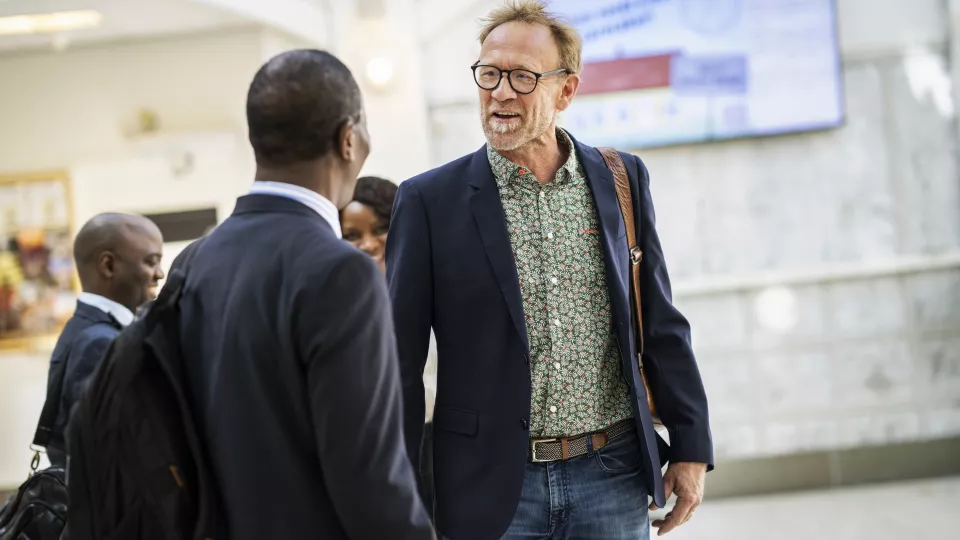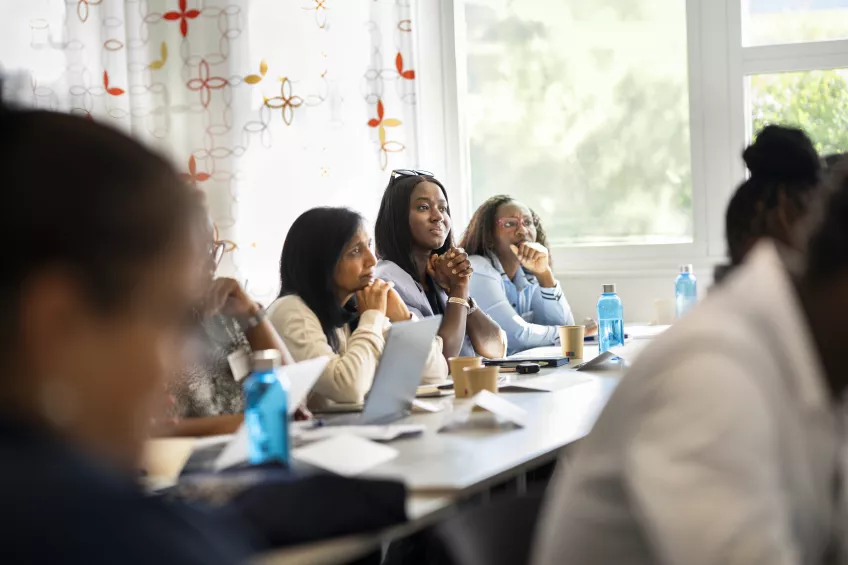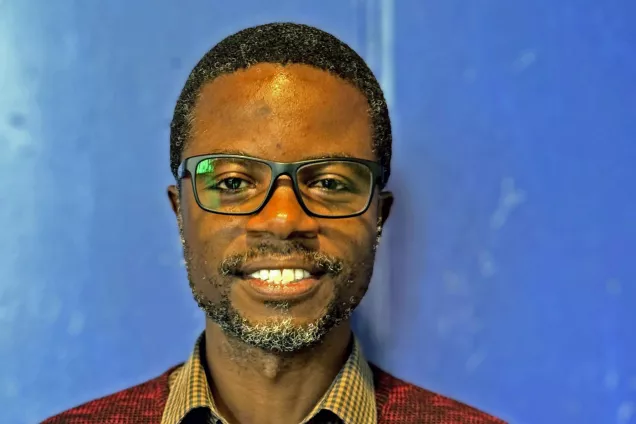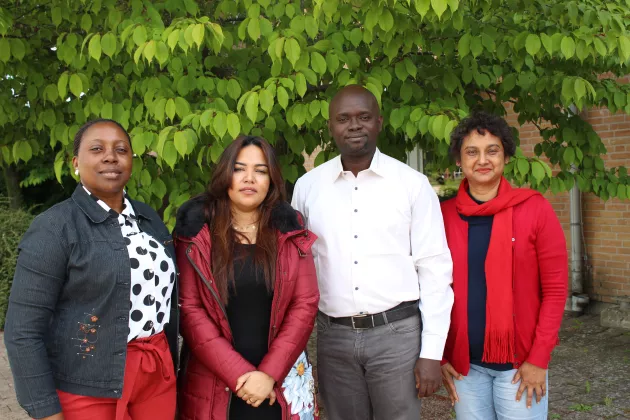Two years ago, four interviewed participants expressed high satisfaction. Now, we revisit the course director and a couple of participants to summarise the course's impact and explore motivations and future applications.
How can the course be summarised so far? What motivated these already hard-working professionals to travel to Sweden and LUSEM for this three-week course? How do they plan to apply the knowledge and skills gained to their professional lives back home?
So far, on three occasions, groups of 18–19 participants have come to Lund for this course. One of the fundamental principles has always been that it's not just about a three-week course in Lund, but that discussions, collaboration, and contact should continue. Martin describes the creation of a well-functioning community and plans for continued communication and physical gatherings:
”Since I have ongoing contact with them, I know that they keep in touch and engage in discussions with each other. We will also have an alumnus meeting soon in Addis Ababa at the end of the summer. Previous participants are invited, and as part of that, they will submit a progress report, detailing what has happened since last time.”
A programme with an impact
The participants are public officials in their respective home countries, and the existence of this programme has gained attention from their superiors, who often hold high positions in ministries. These, and even several prime ministers and other decision-makers, have shown interest which has led to ideas about developing an executive programme. However, this is still in the early stages of consideration, Martin explains.
Another example of the impact of this programme and the spread of its positive reputation is the delegation from Mozambique last year. After the final assignment by the course participant from Mozambique had captured the interest of several ministers, about ten of them expressed a desire to visit the industrial park in Lund, which they did just a few months later.
In just two years, the education has become well-known in parts of the world, and it seems that this trend will only continue. Martin mentions further examples:
”The entire project generates new ideas, and it spreads. For instance, the course is referenced in the EU Africa Innovation Agenda, and all of this leads to new initiatives through this project, such as implementations in various countries. For example, we have established contact with Brazil, where we collaborate in various ways.”
To foster innovation
Menggeh Lowe from Gambia and Ernest Mupemo Mwale from Zambia are two of the participants this year. Both are enthusiastic and highly satisfied with the programme. What motivated them to come all the way to Sweden and LUSEM?
Menggeh holds a Bachelor's degree in political science. After working in the tech industry and then in the public sector, she developed a strong passion for innovation, which eventually led her to Lund:
“I started to look for places where I could study innovation systems combined with entrepreneurial ecosystems. What drew me to this programme was how niched it was, it had everything that I wanted to do,” Lowe explains.
Ernest works within the agricultural sector and has a MSc in Development and rural innovation. The content of the programme was linked to what he is doing regarding promoting innovation regarding agricultural technologies.
“I was keen to explore how digital innovations could intersect with agricultural technology. I firmly believe in the power of networking and the synergy that can arise when different sectors collaborate. Additionally, I wanted to engage with individuals beyond the borders of Zambia to foster innovation. I anticipated that this education would enrich me in various ways,” Ernest says.
“So much potential for collaboration and knowledge sharing.”
How has your experience been with the programme so far?
“We have learned things both within and outside the classroom. When I came here, I looked at innovation only in the digital space due to my background but this has made me look at innovation on a broader scope. Now I look at innovation more like a system and I realised that you can’t look at innovation only from one lens. And the economic history perspective gave me a lot, for me it never made sense why Africa is not moving forward. Now I can zoom into the sectors that must be developed. And to be in Lund is perfect! You have the innovation district and we can learn best practices. I certainly got new perspectives,” Menggeh says.
She adds:
“And I have learned so much from my classmates! There is so much potential for collaboration and knowledge sharing.”
Ernesto continues on the same track:
“Networking, policy and practice!” he emphasises and continues:
“I have been given tools to be able to put myself as a bridge between the policy level and the grassroots level. I think I will be able to facilitate innovation in other sectors beyond agriculture where I am currently working. The visit to Ideon science park for example gave me ideas and probably possibilities to work with innovation incubation back home.”
Both Menggeh and Ernest, bring with them positive experiences from their stay in Lund. The course, moreover, provided more than courses usually do, Menggeh points out.
“The fact that this programme was not only old common ‘sit-down-and-hear’ lectures, but we also did project proposals and now when we listened to each other’s final presentations I realised that these are actual things you can do back home. The programme made us think about what we want to build on the knowledge that we already have gained here and come up with a project proposal. Even before we leave Sweden!”
A global network of innovators
Takeaways?
“My takeaway is that, when back home, I want to find a way to blend my new knowledge to help companies to connect to a digital space to access a larger market. I will work with this implementation as a project,” Menggeh says.
“For me a continuation of the discussions that we started here is a take and to provide my own perspective on what is to be done,” Ernest states.
As the capacity-building programme continues to build a bridge between academic insight and practical implementation, it is evident that it not only equips participants with valuable knowledge but also fosters a global network of innovators dedicated to sustainable development. The experiences of Lowe Menggeh and Ernest Mupemo Mwale, among others, highlight the transformative impact of the course, promising continued innovation and collaboration well beyond the boundaries of Lund.






